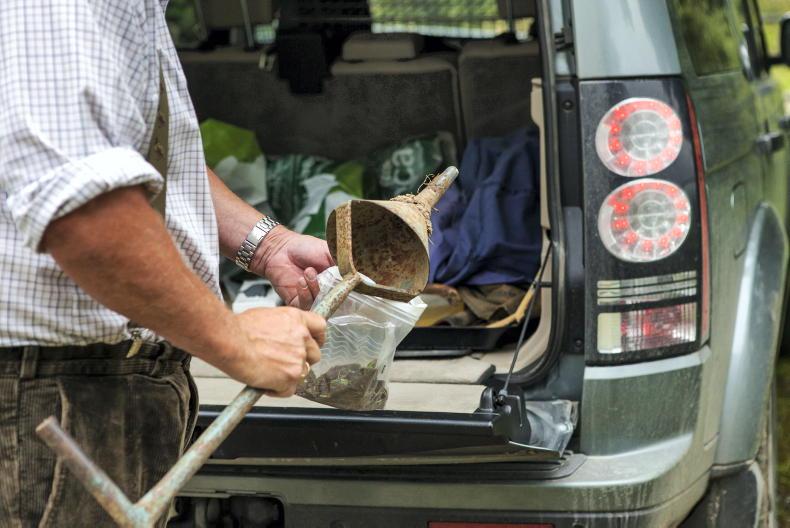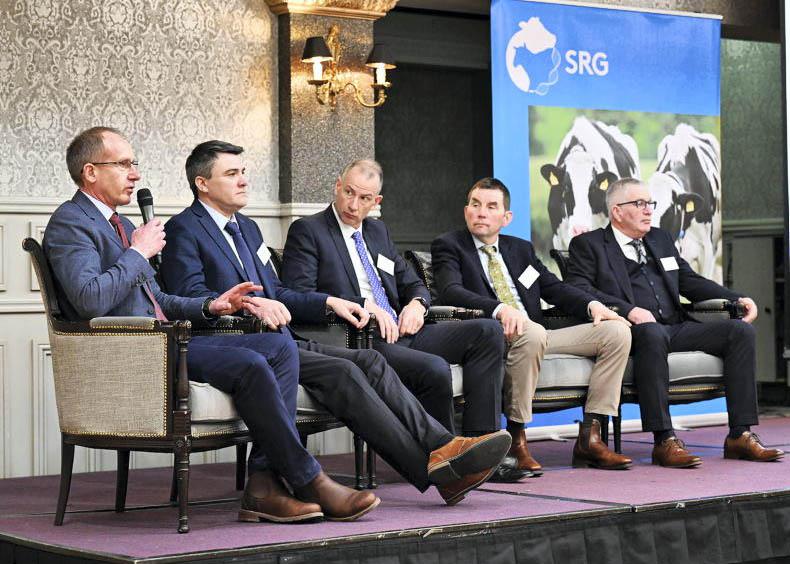Upcoming climate change targets for the NI agriculture sector will not be easy to meet, a senior DAERA official has said.
Speaking in Antrim on Tuesday, Norman Fulton explained that greenhouse gas reduction targets for each sector of the NI economy will need to be set every five years.
The sectoral plans are a key requirement under the new NI climate change act which passed through Stormont earlier this year.
Fulton said work on setting a specific target for NI agriculture will start “very, very soon”.
“While we don’t have to solve everything on day one, these [targets] will stretch us and won’t be easy to deliver,” he warned.
The overall target under the new climate act is for NI to reach net zero greenhouse gas emissions by 2050, although methane emissions do not need to fall by more than 46% compared to 1990 levels.
Fulton said achieving sectoral targets for agriculture would be a key consideration in designing a new system of farm payments.
This is set to include a new area-based Farm Sustainability Payment, as well as headage payments for suckler cows and beef cattle to incentivise improved efficiency, and a Farming With Nature package.
“Sustainability is very much at the centre of our thinking,” Fulton added.
Climate costs must be covered, says Dutch farmer
Dutch dairy farmer Wilco Brouwer de Koning is involved in trialling a new feed additive that reduces methane emissions from cattle.
Speaking at NI Dairy Council event in Antrim, Wilco said the feed additive Bovaer is fed through the total mixed ration on his 185-cow dairy farm. Previous trials have shown that Bovaer can reduce methane emissions by 30% on average.
However, Wilco pointed out that it adds 1c/litre to his cost of production, and he argued that there needs to be adequate incentives for farmers to use technologies that cut greenhouse gases.
“If the processors are not paying us more than 1c/l, then no farmer is going to use it. The market has to pay more for less greenhouse gases from milk, otherwise we will not use it,” he said.
Upcoming climate change targets for the NI agriculture sector will not be easy to meet, a senior DAERA official has said.
Speaking in Antrim on Tuesday, Norman Fulton explained that greenhouse gas reduction targets for each sector of the NI economy will need to be set every five years.
The sectoral plans are a key requirement under the new NI climate change act which passed through Stormont earlier this year.
Fulton said work on setting a specific target for NI agriculture will start “very, very soon”.
“While we don’t have to solve everything on day one, these [targets] will stretch us and won’t be easy to deliver,” he warned.
The overall target under the new climate act is for NI to reach net zero greenhouse gas emissions by 2050, although methane emissions do not need to fall by more than 46% compared to 1990 levels.
Fulton said achieving sectoral targets for agriculture would be a key consideration in designing a new system of farm payments.
This is set to include a new area-based Farm Sustainability Payment, as well as headage payments for suckler cows and beef cattle to incentivise improved efficiency, and a Farming With Nature package.
“Sustainability is very much at the centre of our thinking,” Fulton added.
Climate costs must be covered, says Dutch farmer
Dutch dairy farmer Wilco Brouwer de Koning is involved in trialling a new feed additive that reduces methane emissions from cattle.
Speaking at NI Dairy Council event in Antrim, Wilco said the feed additive Bovaer is fed through the total mixed ration on his 185-cow dairy farm. Previous trials have shown that Bovaer can reduce methane emissions by 30% on average.
However, Wilco pointed out that it adds 1c/litre to his cost of production, and he argued that there needs to be adequate incentives for farmers to use technologies that cut greenhouse gases.
“If the processors are not paying us more than 1c/l, then no farmer is going to use it. The market has to pay more for less greenhouse gases from milk, otherwise we will not use it,” he said.









SHARING OPTIONS